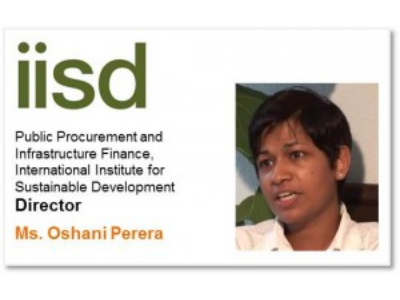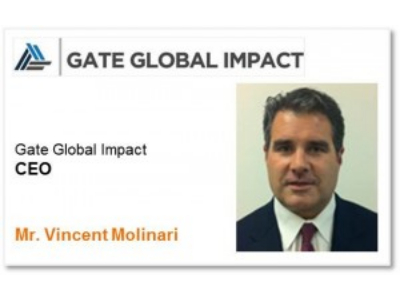An ambitious and truly transformational Post2015 Agenda will require a significant increase in financial resources that address social, environmental and economic development needs. Addressing these large financing needs, will require all types of flows, including public, private, international and domestic.
As the conversations on financing sustainable development take an increasingly central role, the private sector is increasingly recognized as an essential actor in such conversations. And private action is well under way. With the growth of the corporate sustainability movement around the globe, investors and companies are increasingly aware of the importance of embedding environmental, social and governance considerations in their investments and delivering value for business and society.
There are great synergies among different private actors. Companies and investors are increasingly working together to address sustainability challenges. Companies play a critical role in driving inclusive growth, improving social and environmental practices and creating jobs and value for society. Investors have the capacity to raise capital and support the growth of sustainable companies and through active ownership they can also influence the social and environmental performance of companies. However there is a need for practical guidance for institutional investors, companies and foundations on how they can engage in a coordinated fashion to finance a sustainable future.
Towards a toolkit for institutional investors, companies and foundations to finance a sustainable future
The UN Global Compact, UNCTAD and the Principles for Responsible Investment are working to devise such a toolkit based on consultations with stakeholders. The Discussions at the World Investment Forum helped build on existing good practices and synergies and provided more clarity on specific tools and approaches to address some of the following key questions.
Elements for the debate
- Rationale for investing in the Sustainable Development Goals. How can investors and global companies establish a rationale for contributing to the success of the Sustainable Development Goals? What’s the business case and what investment opportunities emerge from the SDGs? How should the private sector engage with governments and the UN to help contribute to implementation of the SDGs?
- Shift towards a long term and sustainable approach to investment. How can private investors transition towards a long term approach in investment decisions? What are effective planning and evaluation practices required to engage in investments with longer term horizons? How can private investors rebalance portfolios to investment increasingly in projects and products which contribute towards achievement of the SDGs?
- Impact of private investments towards the Sustainable Development Goals. How should investors, companies and foundations measure, monitor and communicate the impact of their investments in sustainability? What are the emerging definitions and metrics for impact used by private investors? How can they maximize the impact of their investments and deliver value for business and society?
- Partnerships for investments at scale. What are the key elements of successful partnerships between the public sector, companies and investors to mobilize investment in the Sustainable Development Goals? What are effective coordination mechanisms?
The session consisted of two segments, starting with a panel discussion in plenary (60 minutes) followed by a group discussion covering specific questions put for discussion (75 minutes) and final recap of main themes that have emerged from the session (15 minutes).



